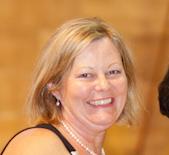
PROJECT SUMMARY:
Our research focus is in the mechanisms underlying, and treatment of, movement disorders such as focal hand Dystonia and upper limb spasticity after stroke. Her technical expertise is based around using Transcranial Magnetic Stimulation (TMS) to study motor control and her novel findings from experiments investigating upper limb control in healthy humans and in stroke survivors have increased understanding of mechanisms underlying coordination of the upper limb. Lynley’s research involves using treatment interventions based on principles of neuroplasticity, such as noninvasive brain stimulation and peripheral nerve stimulation, as a therapeutic approach for the rehabilitation of movement disorders. Noninvasive brain stimulation has the potential for translation into clinical the clinical setting however, further systematic investigation is required to understand the mechanisms of action and efficacy in individual disorders. Lynley is also interested in the potential use of clinical tests and biomarkers to individualize upper limb therapy for stroke survivors and patients with movement disorders. Lynley has established a Human Neurophysiology Laboratory located within the Repatriation General Hospital in Adelaide. She is working with medical and physiotherapy clinicians in the hospital setting and her work is supported by the Departments of Physiotherapy and Rehabilitation, Aged and Allied Health at Flinders University.



 The Brain Foundation is the largest, independent funder of brain and spinal injury research in Australia. We believe research is the pathway to recovery.
The Brain Foundation is the largest, independent funder of brain and spinal injury research in Australia. We believe research is the pathway to recovery.